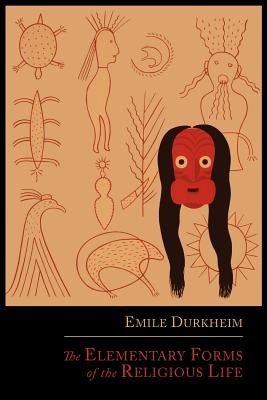
- We will send in 10–14 business days.
- Author: Emile Durkheim
- Publisher: Martino Fine Books
- ISBN-10: 1614273014
- ISBN-13: 9781614273011
- Format: 15.2 x 22.9 x 2.6 cm, minkšti viršeliai
- Language: English
- SAVE -10% with code: EXTRA
Reviews
Description
2012 Reprint of 1954 Edition. Exact facsimile of the original edition, not reproduced with Optical Recognition Software. "The Elementary Forms of the Religious Life" analyzes religion as a social phenomenon. Durkheim attributes the development of religion to the emotional security attained through communal living. According to Durkheim, early humans associated such feelings not only with one another, but with objects in their environment. This, Durkheim believed, led to the ascription of human sentiments and superhuman powers to these objects, in turn leading to totemism. The essence of religion, Durkheim finds, is the concept of the sacred, that being the only phenomenon which unites all religions. "A religion," writes Durkheim, "is a unified system of beliefs and practices relative to sacred things, that is to say, things set apart and forbidden - beliefs and practices which unite into a single moral community called a Church, all those who adhere to them." In modern societies, the individual and individual rights evolve to become the new sacred phenomena, and hence these may be called "religious" for Durkheim. Durkheim examined religion using such examples as Pueblo Indian rain dances, the religions of aboriginal tribes in Australia, and alcoholic hallucinations.
EXTRA 10 % discount with code: EXTRA
The promotion ends in 23d.04:21:09
The discount code is valid when purchasing from 10 €. Discounts do not stack.
- Author: Emile Durkheim
- Publisher: Martino Fine Books
- ISBN-10: 1614273014
- ISBN-13: 9781614273011
- Format: 15.2 x 22.9 x 2.6 cm, minkšti viršeliai
- Language: English English
2012 Reprint of 1954 Edition. Exact facsimile of the original edition, not reproduced with Optical Recognition Software. "The Elementary Forms of the Religious Life" analyzes religion as a social phenomenon. Durkheim attributes the development of religion to the emotional security attained through communal living. According to Durkheim, early humans associated such feelings not only with one another, but with objects in their environment. This, Durkheim believed, led to the ascription of human sentiments and superhuman powers to these objects, in turn leading to totemism. The essence of religion, Durkheim finds, is the concept of the sacred, that being the only phenomenon which unites all religions. "A religion," writes Durkheim, "is a unified system of beliefs and practices relative to sacred things, that is to say, things set apart and forbidden - beliefs and practices which unite into a single moral community called a Church, all those who adhere to them." In modern societies, the individual and individual rights evolve to become the new sacred phenomena, and hence these may be called "religious" for Durkheim. Durkheim examined religion using such examples as Pueblo Indian rain dances, the religions of aboriginal tribes in Australia, and alcoholic hallucinations.


Reviews